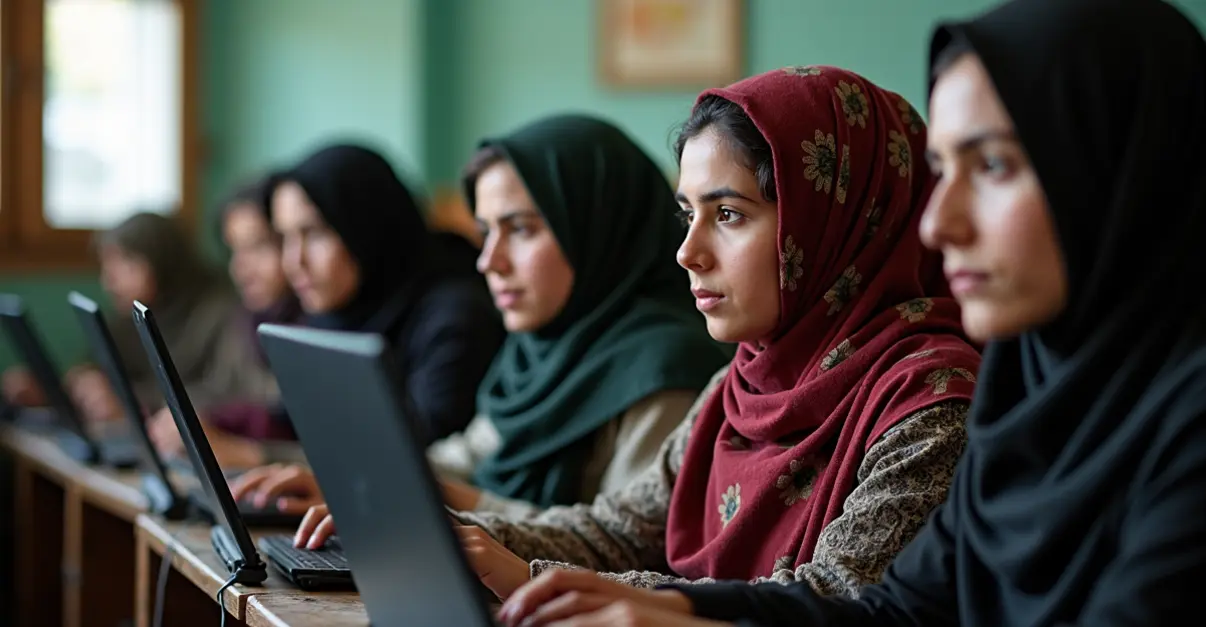Internet services in Afghanistan are gradually returning after a two-day nationwide blackout imposed by the Taliban. The shutdown severely impacted banking, healthcare, and humanitarian operations, with the UN warning it worsened the country's humanitarian crisis.

Internet Services Gradually Restored After Nationwide Shutdown
Internet connectivity in Afghanistan appears to be gradually returning after a two-day nationwide blackout imposed by the Taliban government. According to multiple sources and internet monitoring organization Netblocks, more than half of internet traffic has been restored, though not all service providers are fully operational yet.
Complete Communications Blackout
The Taliban implemented a complete telecommunications ban two days ago, effectively cutting off Afghanistan from the outside world. The shutdown affected fiber optic and mobile internet services, along with telephone communications, radio, and television broadcasts. The outage created severe disruptions across multiple sectors, including banking systems, airport operations, and healthcare facilities.
'Hospitals continued to function, but couldn't access patient records,' reported one medical professional who spoke on condition of anonymity. 'The complete lack of communication made coordinating emergency care nearly impossible.'
Humanitarian Crisis Worsens
The internet blackout severely impacted humanitarian operations in a country already facing one of the world's worst humanitarian crises. Aid organizations began recalling staff members as security could no longer be guaranteed without communication capabilities. The United Nations had called on the Taliban to immediately restore connections, warning that the shutdown threatened economic stability and exacerbated the ongoing crisis.
According to Human Rights Watch, the shutdown particularly affected women and girls, who have been banned from secondary and higher education under Taliban rule. Internet access had become one of their few remaining avenues for education and connection with the outside world.
Taliban's Conflicting Explanations
The Taliban government has offered conflicting explanations for the communications blackout. While some officials denied implementing an intentional ban, claiming the disruption resulted from replacing worn-out fiber optic cables, this explanation has been met with skepticism. 'The cables weren't that old,' noted a telecommunications expert familiar with Afghanistan's infrastructure. 'Many suspect the communications were temporarily shut down for another reason that hasn't been made public.'
This incident follows earlier internet restrictions imposed last month in several provinces after Taliban supreme leader Hibatullah Akhundzada issued a decree to ban fast internet "to prevent immorality." Since returning to power in 2021, the Taliban have implemented numerous restrictions on activities they consider contrary to sharia law and their policies.
Economic and Social Impact
The two-day blackout paralyzed Afghanistan's economy, with banking services becoming inaccessible and air traffic control systems going offline, leading to flight cancellations. Small businesses reported significant losses, particularly those in handicrafts and online commerce that depend on digital connectivity.
UN officials expressed grave concern about the shutdown's impact on humanitarian operations, especially earthquake relief efforts in remote communities. The blackout complicated an already dire situation as winter approaches, with urgent needs for shelter and warm clothing for displaced populations.
While internet services are gradually returning, the restoration remains incomplete, and the Taliban government has yet to provide a comprehensive explanation for the nationwide communications shutdown that left 43 million Afghans disconnected from the world for two critical days.

 Nederlands
Nederlands
 English
English
 Deutsch
Deutsch
 Français
Français
 Español
Español
 Português
Português









